Events
2022-10-22 00:00:00
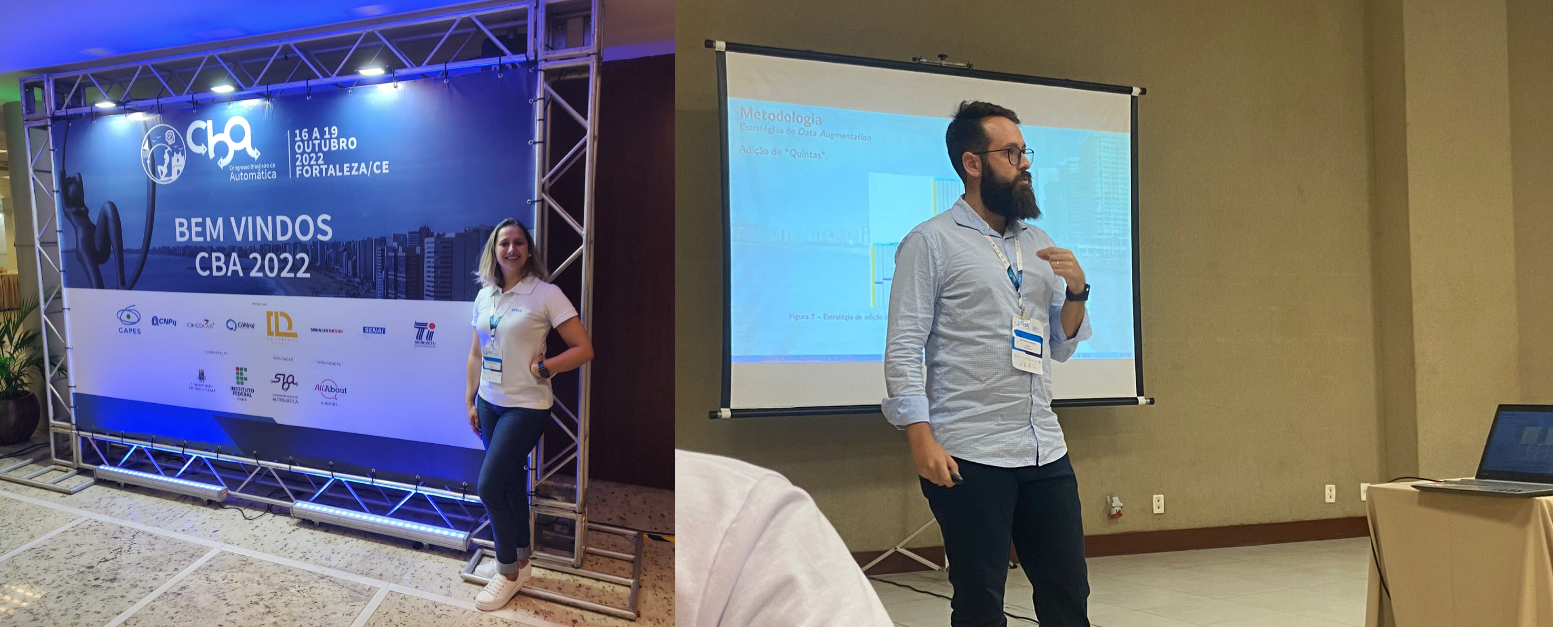
MINDS Participation in the XXIV Brazilian Congress of Automatics (CBA 2022)
MINDS members had a great participation in the 24th edition of the Brazilian Congress of Automatics (or Congresso Brasileiro de Automática, or simply CBA). CBA took place between October 16 and 19, 2022, at Fábrica de Negócios, helded by the Federal University of Ceará (UFC) and Brazilian Automatics Society (SBA) with support from the Federal Institute of Education, Science and Technology of Ceará (IFCE).
Our MINDS member Matheus Bitaraes and our alumni Tamires Martins Rezende presented the papers listed bellow. These articles are joint works with external members and other Minders, such as Marcos Antonio Alves, Samara Silva Santos, Frederico Gadelha Guimarães, Bruno Alberto Soares Oliveira and Silva Almeida. And we have to confess that Agnaldo José da Rocha Reis was also seen there.
The works presented were:
- Data Augmentation Strategies for Music Composition Using Generative Adversarial Networks. Authors: Matheus Bitaraes, Frederico Gadelha Guimarães and Frederico Gualberto Ferreira Coelho.
- Interpretable Diagnosis of Skin Cancer Using Deep Learning. Authors: Samara Silva Santos, Marcos Antonio Alves, Tamires Martins Rezende and Frederico Gadelha Guimaraes.
- Ampliação da base MINDS-Libras: um estudo de aplicação de técnicas de aumento sintético de dados e da inclusão de novos conjuntos de vídeos disponíveis na literatura. Authors: Arthur Almeida, Tamires Martins Rezende and Sílvia Grasielala Moreira Almeida.
- Visão Computacional Aplicada ao Monitoramento de Chaves Seccionadoras de Subestação de Energia Elétrica. Authors: Tamires Martins Rezende, Bruno Alberto Soares Oliveira, Glauco Paula, Gustavo Souza, Daniel Calvo, Eugênio Daher and Adriano Silva.
Congratulations, Minders!
2021-10-08 00:00:00
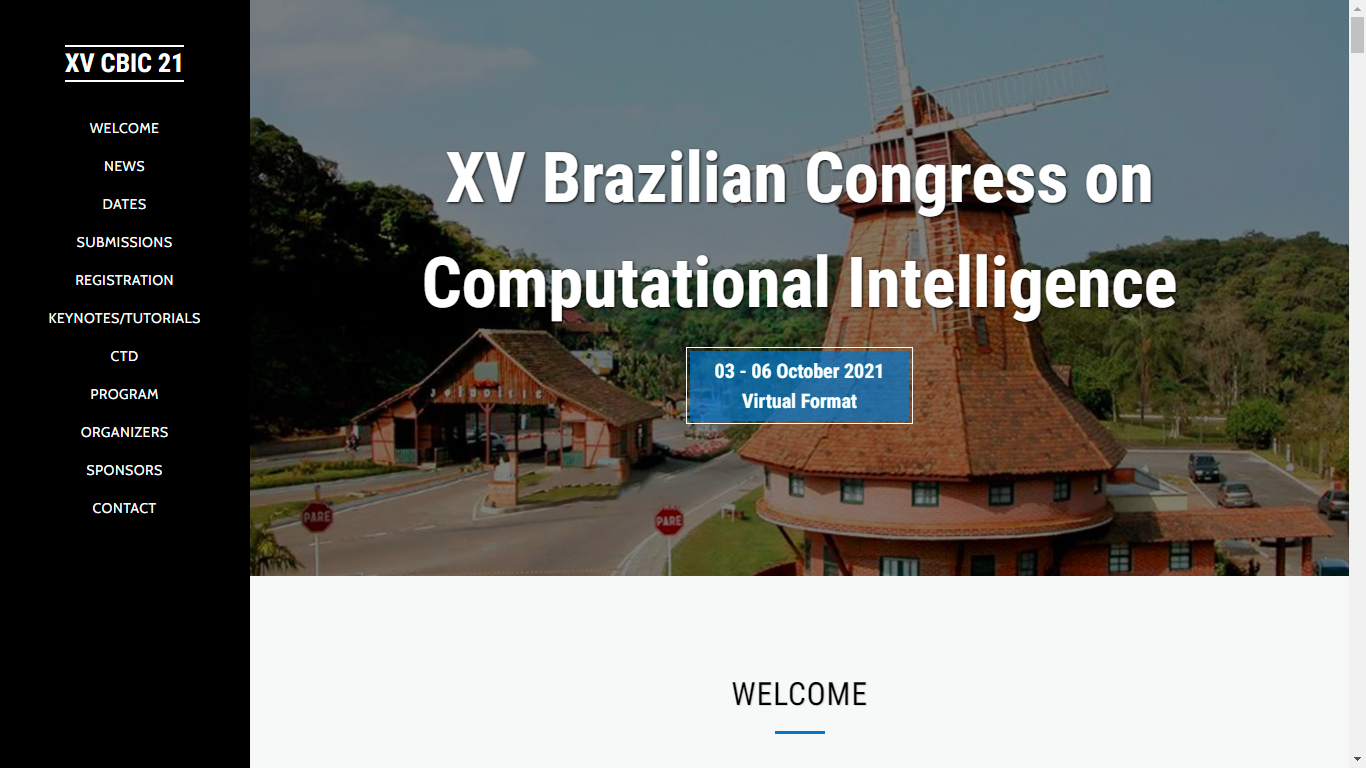
MINDS Participation in the XV Brazilian Congress on Computational Intelligence
MINDS members had a significant participation in the 15th edition of the Brazilian Congress on Computational Intelligence (known as CBIC). CBIC was an online event organized by the Universidade do Estado De Santa Catarina (UDESC) - Joinville, Santa Catarina, Brazil. The papers accepted (including the best paper) were:
- Aprendizado Incremental de Redes RBF via Agrupamento Evolutivo de Fluxos de Dados. Authors: Thais M.L. Meneghaldi, Rodrigo A. Coelho and Cristiano L. Castro. It was the best paper awarded. Link: https://sbic.org.br/eventos/cbic_2021/cbic2021-57/
- Learning Pairwise Comparisons with Machine Learning for Large-Scale Multi-Criteria Decision Making Problems. Authors: Marcos A Alves, Ivan R. Meneghini and Frederico G. Guimarães. Link: https://sbic.org.br/eventos/cbic_2021/cbic2021-13/
- PDTX: A novel local explainer based on the Perceptron Decision Tree. Authors: Samara S. Santos, Marcos A Alves, Leonardo A Ferreira and Frederico G. Guimarães. Link: https://sbic.org.br/eventos/cbic_2021/cbic2021-50/
- Suporte para Diagnóstico de COVID-19 por Meio de Classificação Automática de Imagens de Raio-x e Modelos Explicáveis. Authors: Bruno A S Oliveira, Hugo Ziviani, Juscelino Oliveira, Alan Viegas and Daniel Calvo. Link: https://sbic.org.br/eventos/cbic_2021/cbic2021-14/
- Uma Abordagem de Classificação de Ovos de Parasitos Intestinais Humanos em Imagens Microscópicas usando Redes Neurais Convolucionais. Authors: Bruno A S Oliveira, João Moreira, Deborah Corrêa, Stefan Geiger and Frederico G. Guimarães. Link: https://sbic.org.br/eventos/cbic_2021/cbic2021-19/
Congratulations, Minders!
2020-01-02 00:00:00
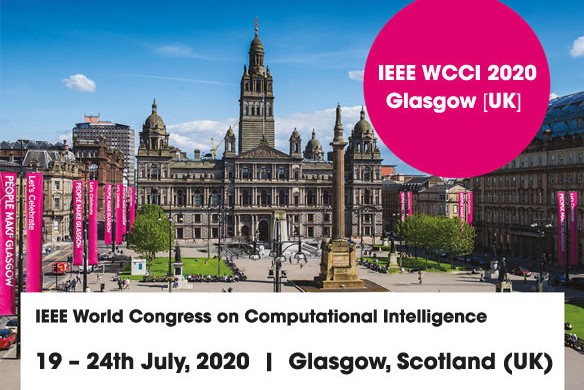
FUZZ-IEEE 2020 – International Conference on Fuzzy Systems
Special Session on Fuzzy Time Series
FUZZ-IEEE 2020 – International Conference on Fuzzy Systems
Link FUZZ-IEEE 2020: https://wcci2020.org/
Aim:
Song and Chissom introduced Fuzzy Time Series (FTS) in 1993 to deal with vague and imprecise knowledge in time series data. FTS methods have been drawing more attention and relevance in recent years due to many studies reporting its good accuracy compared with other models. FTS forecasting methods produce data-driven and non-parametric models and have become attractive due to their simplicity, versatility, forecasting accuracy, and computational performance, and it also produces human-readable representations of the time series patterns, making its knowledge transferable, auditable, easily reusable and updatable. Examples of successful applications are shown in energy load forecasting, solar and wind forecasting, stock index prices prediction, seasonal time series, interval forecasting, and probabilistic forecasting.
More recently, many sophisticated and hybrid models have appeared in the literature, showing remarkable results and correcting some methodological problems found in previous studies. The interesting aspect of FTS models is to identify patterns and causal relations in the temporal sequence of fuzzy sets that represent the fuzzified historical data. These temporal patterns generate fuzzy rules, which are then used for prediction.
The goal of the special session is to provide a broad overview of the recent developments in fuzzy time series methods and applications and to explore research challenges in specific topics as detailed below.
Scope and Topics:
- Multi-variate time series forecasting
- Spatio-temporal models
- Techniques for high-order, trend and seasonality
- Type-2 fuzzy time series
- Techniques to address nonstationary data and concept drifts
- Data stream forecasting
- Rule mining for fuzzy time series
- Split-and-merge techniques for fuzzy rules
- Symbolic time series
- Interval data and interval forecasting
- Probabilistic forecasting
- Fuzzy linguistic data in time series
- Hybrid methods and neuro-fuzzy approaches
- Evolutionary algorithms for fuzzy time series
- Hyper-parameter tuning and adaptation
- Big data time series
- Distributed, parallel algorithms and scalability issues
- Applications in energy: load, solar and wind forecasting
- Financial time series, stock markets, foreign exchange
- Sentiment analysis and opinion time series
- Fault detection and prediction
- Predictive maintenance
- Applications in industry
Organizers:
Prof. Frederico Gadelha Guimarães – Federal University of Minas Gerais (UFMG), Brazil. E-mail: fredericoguimaraes@ufmg.br
Prof. Muhammad Hisyam Lee – University Technology Malaysia (UTM), Malaysia. E-mail:
mhl@utm.my
Dr. Hossein Javedani Sadaei – Chief Digital Officer (CDO) in Gotodata, Brazil. E-mail:
h.javedani@gmail.com
Dr. Petrônio Cândido de Lima e Silva – Federal Institute of Northern Minas Gerais (IFNMG), Brazil. E-mail:
petronio.candido@ifnmg.edu.br
Biographies:
Frederico G. Guimarães (SM’19) received the B.Eng., M.Sc., and Ph.D. degrees in electrical engineering from the Federal University of Minas Gerais (UFMG), Belo Horizonte, Brazil, in 2003, 2004, and 2008, respectively. He also had a post-doctoral fellowship at the Laboratoire Images, Signaux et Systèmes Intelligents (LiSSi), Université Paris-Est Créteil (UPEC), Paris, France, from 2017 to 2018. In 2010, he joined the Department of Electrical Engineering, UFMG, and in 2018, he became an Associate Professor. He has been responsible for the Machine Intelligence and Data Science Laboratory (MINDS) for computational intelligence research since 2014. He has published more than 200 articles in journals, congresses, and chapters of national and international books. He has experience in electrical engineering and computer engineering, with an emphasis on optimization, computational intelligence, genetic algorithms, and evolutionary computation. He is also a senior member of the IEEE Computational Intelligence Society (CIS) and the IEEE Systems, Man, and Cybernetics Society (SMCS). He received the One-Year Visiting Student Scholarship at McGill University, Montreal, Canada, from 2006 to 2007.
Muhammad H. Lee holds the degree in B.Sc. (1991), M.Sc. (1994) in Statistics of Universiti Kebangsaan Malaysia and Ph.D (2003) in Mathematics of Universiti Teknologi Malaysia. He has been the faculty since 1991 and currently serving as Professor of the Department of Mathematical Sciences, Universiti Teknologi Malaysia (UTM). Currently, he is a member of University Senate, UTM. Previously, served in Standing Committees on Academic Affairs, Research & Innovation, Library & Educational Resources, and Industry & Community Linkages of UTM. Also, served as Manager (Information Technology), Office of the Deputy Vice-Chancellor (Academic and International), UTM during Apr. 2014 – Feb. 2018 and as Manager (Information Technology), Research Management Centre, UTM during Nov. 2010 – Nov 2012. Currently, working as Deputy Director (Analytics and Institutional Research), Office of Strategy Management, Office of the Vice-Chancellor, UTM. He has more than 25 years of teaching and research experience. His interest includes academic matters, academic programme assessment and review, research assessment exercise, statistical science, and information technology. He has contributed more that 100 research papers which are published in reputed journals or conferences.
Hossein J. Sadaei received his B.Sc. in applied mathematics in 2001. He received his M.Sc. degree in pure mathematics from Zanjan University, Iran in 2004. He has also received his Ph.D. degree from Universiti Teknologi Malaysia in 2013, in Statistics. Starting from 2014, he was accepted as a postdoctoral fellow in UFMG, Brazil. His research interests include fuzzy time series, forecasting, learning systems, optimization algorithms, big data, natural language processing. Dr. Javedani has more than 10 years of experience in developing advanced forecasting methods and is the author of more than 20 scientific publications and few patents. Most of his efforts are about combining fuzzy time series methods with novel concepts and deep learning to improve the performance of forecasting. He is conducting a new concept in the fuzzy time series, namely, polynomial fuzzy time series. Following a Ph.D. in Statistics, he took up a position as leader analytics of the big data team in the research and development center of Telecom Malaysia. Dr. Javedani is currently a Chief Digital Officer (CDO) in Gotodata and also an active member of MINDS lab at UFMG.
Petrônio C. Lima e Silva was born in Janauba, Brazil, in 1982. He received the bachelor degree in Information Systems from the Santo Agostinho Faculty of Exact and Technological Sciences (FACET, Montes Claros, Brazil), in 2005, the M.Sc. degree in Informatics from the Pontifical Catholic University of Minas Gerais (PUC/MG, Belo Horizonte, Brazil), in 2010, and the Ph.D. in electrical engineering from the Federal University of Minas Gerais (UFMG), Brazil, in 2019. In 2013 he joined the Federal Institute of Northern Minas Gerais (IFNMG, Januaria, Brazil) working as lecturer in undergraduate courses in software development, databases, data-ware-housing and machine intelligence. His current research interests include data science methods for spatio-temporal data, computational intelligence and machine learning, including scalable soft computing methods for probabilistic forecasting of dynamic and complex systems. He got his Ph.D. in Electrical Engineering at the Machine Intelligence and Data Science (MINDS) laboratory at the Federal University of Minas Gerais (Belo Horizonte, Brazil) and is also member of the Research Group on Data Science and Computational Intelligence - CIDIC, at IFNMG, Brazil.
2019-12-31 00:00:00
Happy New Year
Happy new year! We hope 2020 brings more clarity, reflection and wisdom to everyone, because the world is needing it. Health, peace and strength to all of us.
Cheers!
2019-12-24 00:00:00
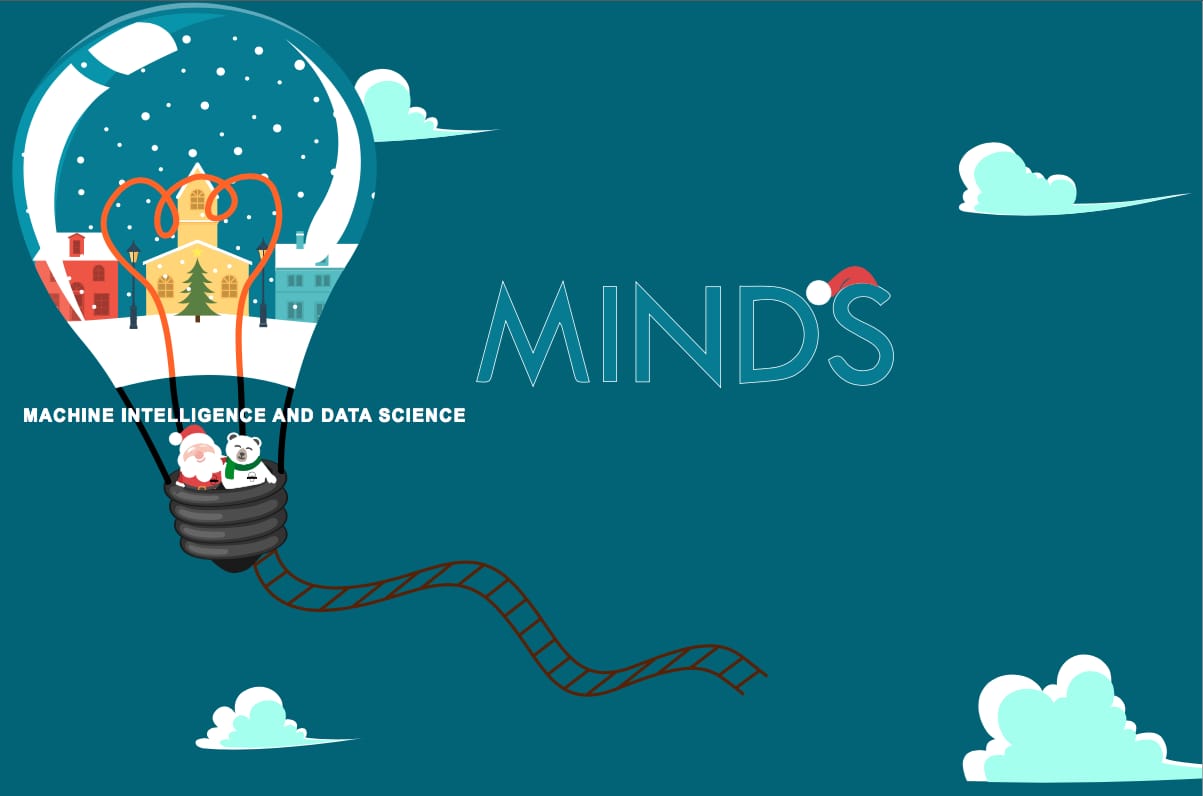
Merry Christmas 2019
Merry Christmas everybody. Minders team wishes all the very best for you all.
2019-10-30 00:00:00
MINDS participation in 14th Brazilian Symposium on Intelligent Automation
MINDS members (we called Minders) had a great participation in the 14th Brazilian Symposium on Intelligent Automation (SBAI). SBAI 2019 was hosted in Ouro Preto, a designated world heritage city by UNESCO located in Minas Gerais state. SBAI is one of the most important scientific events in intelligent automation in Brazil.
Many papers of Minders were accepted to this conference as well as a mini-course of Fuzzy Time Series (FTS) taught by Petrônio C. Lima e Silva and Frederico G. Guimarães. Some of the works accepted are listed bellow:
- Fuzzy Time Series (Mini-course). Authors: Petrônio C. Lima e Silva and Frederico G. Guimarães. The main idea was to explain basic and advanced concepts of FTS. At the end, a Python FTS library (pyFTS) developed by Petronio in his PhD research was introduced to show the main concepts.
- Sistema para classificação de grãos de café: uma comparação entre redes neurais convolucionais e processamento digital de imagens com MLP - in Portuguese. Authors: Bruno A. S. Oliveira, Guilherme M. M. Cardoso, Fábio P. Dias, Francisco H. W. Santos and Frederico G. Guimarães
- Otimização dinâmica evolucionária para despacho de energia em uma microrrede usando veículos elétricos - in Portuguese. Authors: Marcos A. Alves, Lucas Vieira Vilas Boas de Almeida, Tamires M. Rezende, Petrônio C. Lima e Silva, Carlos A. Severiano Junior, Rodrigo C. P. Silva and Frederico G. Guimarães.
- Desenvolvimento de uma base de dados de sinais de Libras para aprendizado de máquina: um estudo de caso com CNN 3D - in Portuguese. Authors: Giulia Z. de Castro, Rúbia R. Guerra, Moises M. de Assis, Tamires M. Rezende, Gabriela T. B. de Almeida, Sílvia G. M. Almeida, Cristiano L. de Castro and Frederico G. Guimarães.
- Otimização evolutiva de hiperparametros para modelos de séries temporais nebulosas - in Portuguese. Authors: Patrícia de Oliveira e Lucas, Petrônio C. Lima e Silva and Frederico G. Guimarães.
2019-09-20 00:00:00
MINDS participation in II Latin American Workshop on Computational Neuroscience
The paper entitled A New Granular Approach for Multivariate Forecasting written by Petrônio C. Lima e Silva, Carlos A. Severiano Junior, Marcos A. Alves, Miri W. Cohen and Frederico G. Guimarães was presented in II Latin American Workshop on Computational Neuroscience (II LAWCN). This paper was also published as a chapter in Computational Neuroscience ebook by Springer under DOI https://doi.org/10.1007/978-3-030-36636-0_4.
The research for computationally cheaper, scalable and explainable machine learning methods for time series analysis and forecasting has grown in recent years. One of these developments is the Fuzzy Time Series (FTS), simple and fast methods to create readable and accurate forecasting models. However, as the number of variables increase the complexity of these models becomes impractical. This work proposes the FIG-FTS, a new approach to enable multivariate time series to be tackled as univariate FTS methods using composite fuzzy sets to represent each Fuzzy Information Granule (FIG). FIG-FTS is flexible and highly adaptable, allowing the creation of weighted high order forecasting models capable to perform multivariate forecasting for many steps ahead. The proposed method was tested with Lorentz Attractor chaotic time series and the GEFCom 2012 electric load forecasting contest data, considering different forecasting horizons. The results showed that the Mean Average Percentual Error of the models was at about 2% and 4% for one step ahead, and for a prediction horizon of 48 h, the MAPE is at about 10%.
The II LAWCN is a conference which aims at bringing together computational neuroscience, neuroscience, neuroengineering and artificial intelligence. In 2019, LAWCN was helded at Campus Santo Antônio of the Federal University of São João Del-Rei, located at the historic district of the São João Del-Rei city during 18-20 September.
2019-09-14 00:00:00
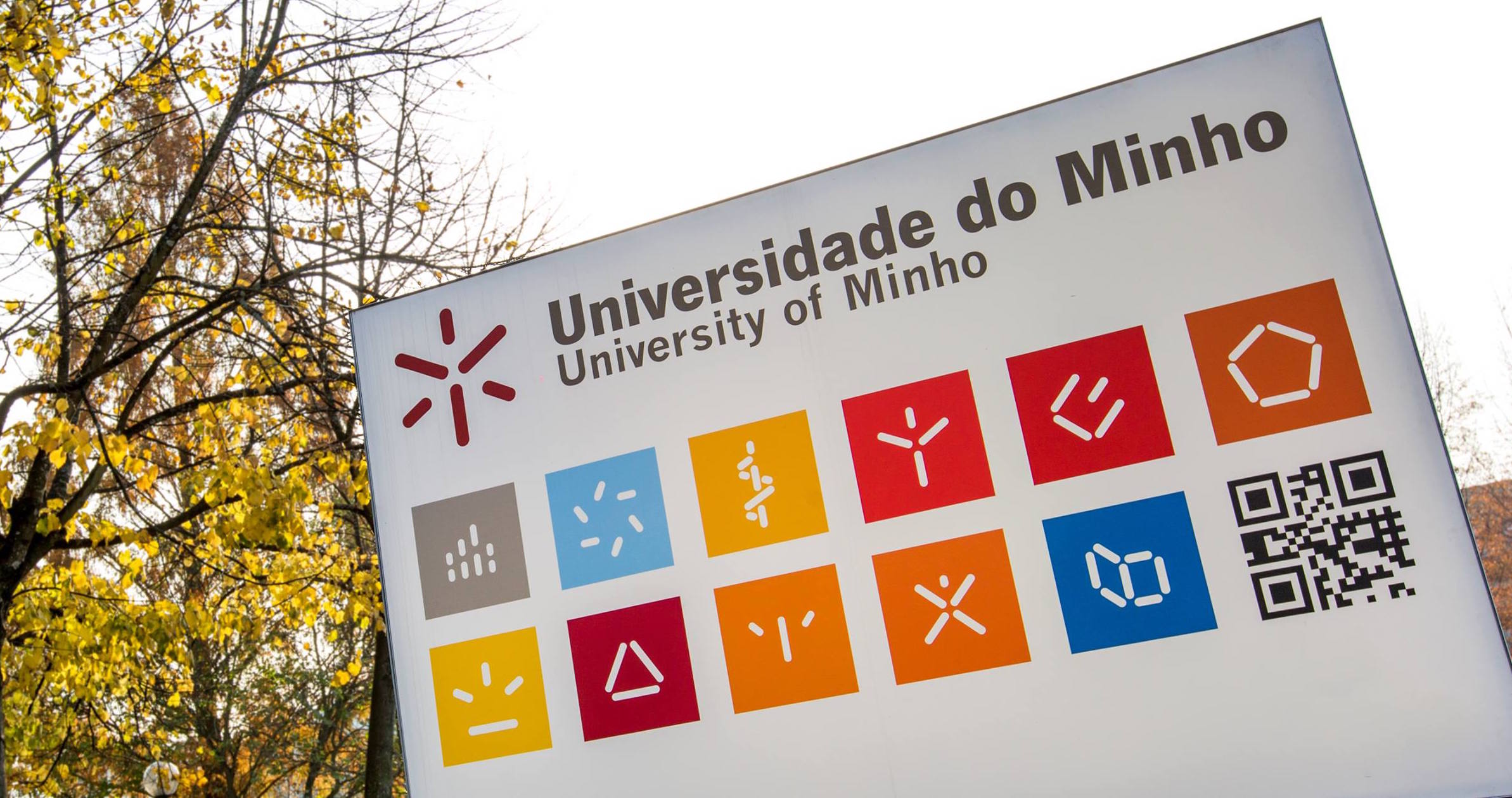
MINDS participation in EUROGEN 2019
The paper entitled Incorporation of Region of Interest in a Decomposition-Based Multi-Objective Evolutionary Algorithm written by Ivan R. Meneghini, Frederico G. Guimarães, Antonio Gaspar-Cunha and Miri W. Cohen was presented in the EUROGEN 2019.
Preference-based Multi-Objective Evolutionary Algorithm (MOEA) restrict the search to a given region of the Pareto front preferred by the Decision Maker (DM), called the Region of Interest (ROI). In this paper, a new preference-guided MOEA is proposed. We define the ROI as a preference cone in the objective space. The preferential direction and the aperture of the cone are parameters that the DM has to provide to define the ROI. Given the preference cone, we employ a weight vector generation method that is based on a steady-state evolutionary algorithm. The main idea of our method is to evolve a population of weight vectors towards the characteristics that are desirable for a set of weight vectors in a decomposition-based MOEA framework. The main advantage is that the DM can define the number of weight vectors and thus can control the population size. Once the ROI is defined and the set of weight vectors are generated within the preference cone, we start a decomposition-based MOEA using the provided set of weights in its initialization. Therefore, this enforces the algorithm to converge to the ROI The results show the benefit and adequacy of the preference cone MOEA/D for preference-guided many-objective optimization.
EUROGEN is a conference which aims at bringing together researchers from universities and industries specialists developing or applying Evolutionary and Deterministic Methods in the optimization of design and emphasizing on industrial and societal applications. In 2019 the EUROGEN conference was hosted by the University of Minho at the historical town of Guimarães, in the North of Portugal during 12-14 September.